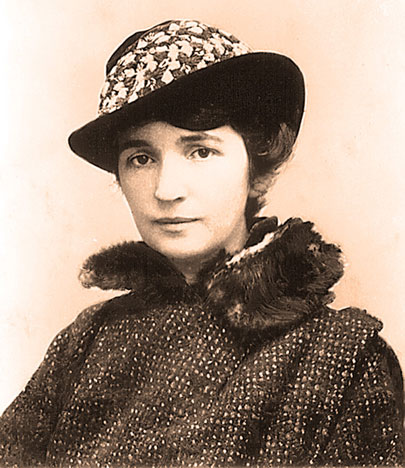Politicians are notorious for obfuscating the truth, so Ruth Bader Ginsburg’s admission that her belief, “…that at the time Roe was decided, there was concern about population growth and particularly growth in populations that we don’t want to have too many of,” was stunning on many levels. The most glaring portion of her statement is contained in the revealing words, “…that we don’t want to have too many of.” The unwanted aspect of her statement, speaks directly to the micro choice she champions for women, as it relates to the macro choices of society.
Justice Ginsburg acknowledged that “unwanted people,” regardless of the reason, could be dealt with through methods that incorporate controlling the growth of certain groups though abortion and reproductive rights, or what is defined as eugenics.
Eugenics is a science that deals with the improvement of hereditary qualities of race or breed by controlling human reproduction. Ginsburg candidly admitted she believed population control was the reason for Roe v. Wade. Ginsberg, while well aware of the unwanted component, still strongly supports abortion. In doing so, she joins many controversial people, throughout history, who have implemented similar practices to purge themselves of unwanted people.
In the Victorian age, a cousin of Charles Darwin, Sir Francis Galton believed that if gifted people mated with gifted people their offspring would be measurably more talented. American eugenic advocates applied Mendelian theory determining the color and size of vegetables and cows, to human beings. The goal was to identify “defective” genetic lines and subject them to segregation and sterilization in an effort to eradicate bloodlines, eliminating reproductive capability of the weak and inferior, ushering in the means for the fittest among them to survive. In effect, forcibly thrashing out unwanted people
Ginsburg is not the first Supreme Court judge to acknowledge eugenic methods as a means of controlling propagation of the unwelcome. In 1927 Supreme Court Justice Oliver Wendell Holmes wrote, “It is better for the world, if instead of waiting to execute degenerate offspring for crime, or let them starve for their imbecility, society can prevent those who are manifestly unfit from continuing their kind…three generations of imbeciles are enough.” In other words, Holmes justified and viewed as moral, ridding the earth of people deemed unwanted.
Ironically, Ruth Bader Ginsburg, who supports the destruction of unwanted people in the form of abortion, could be defined as an unwanted person herself. A Jewess, Ginsburg, if living in Germany during WWII, would have been herded with her family into a cattle car and encouraged to take a shower to freshen up with her Jewish brethren. In Hitler’s struggle for a superior race he attempted to rid the world of unwanted people. Ruth Bader Ginsburg’s ability to produce progeny would have been strongly discouraged through sterilization or more likely in the gas chamber.
Beginning with the elderly and the infirm Hitler justified gassing inferior individuals who were tainting the Aryan nation. These diabolical policies culminated in the annihilation of 6 million peopledefined ascontaminant to the purity of the race. Based on Ginsburg’s ideological support for abortion, a logical conclusion could be that the Honorable Supreme Court Justice would have agreed with Hitler. Following the trajectory of her logic, unwanted is unwanted regardless of the reason.
Abortion advocates, including Margaret Sanger award winner Hillary Clinton, laud the accomplishments of Planned Parenthood founder Margaret Sanger who herself was a proponent of eugenics. Her goal was to rid the world of African Americans through abortion and the neutering of young people deemed racially unfit. Sanger’s objective was a “…superior race that was free of poor, immigrant and minority citizens.” When accepting the highest award that Planned Parenthood confers, Clinton compared Margaret Sanger to Thomas Jefferson. Clinton mentioned Sanger’s superiority to Jefferson because Jefferson had slaves…slaves that Sanger would have preferred be exterminated in lieu of serving tea on a plantation to a slave owning Founding Father.
Sanger and Hitler, like Ginsburg, recognized that there were unwanted people and that policy needed to be implemented to control their proliferation. Sanger said, “…immigrants and Catholics are reckless breeders…an unceasingly spawning class of human beings who never should have been born at all.” In Sanger’s unwanted people group Ginsburg herself would have been listed as a disposable person. Sanger opined that, “Slavs, Latin and Hebrew immigrants are human weeds…a deadweight of human waste…Blacks, soldiers and Jews are a menace to the race,” a sentiment the Justice should be empathetic toward based on her opinions on abortion. For Ginsburg, Sanger and even Hitler, unwanted is unwanted regardless of the reason. Justifying Roe versus Wade undergirds an argument, which supports extermination based solely on who and what is unwanted.
Ginsburg stated in her July 7, 2009, New York Times article, The Place of Women on the Court, that she was perplexed by the Harris v. McRay 1980 decision, which upheld the Hyde Amendment, forbidding Medicaid be used for abortions. Did Ruth Bader Ginsburg believe that Medicaid would serve as a modern day gas chamber to divest the population of unwanted people groups in areas where women didn’t have the funds to acquire their own abortion? Margaret Sanger would have been disappointed along with Justice Ginsberg. Low-income areas, where African Americans lived, were where Sanger initially instituted Planned Parenthood clinics with the desired end to target a specific population.
Former unwanted persons, supporting the destruction of current unwanted people, is like Ruth Bader Ginsburg loading freight trains with her relatives for a trip to Auschwitz. Ginsburg’s statement that being unwanted somehow validates the destruction of human beings, justifies Rwanda, Po Put’s Killing Fields, the destruction of the Kurds, the Nazi Holocaust against the Jews and the extermination of 50 million human beings since 1973. If being “unwanted” is the criteria for the right-to-choose to eradicate someone, then Ginsburg bestowal of credibility on choice, whether it belongs to a dictator, society, nation, group or individual serves to diminish the value of every living being based on the relative definition of those choices.
One glaring dichotomy Ginsburg seems to overlook by her determination to support abortion rights is that she places herself in the cross-hairs of being besieged herself. Ginsburg drags a bio-hazard bag to the incinerator full of dead fetuses, in the name of choice, but might as well be sorting clothes that might contain her own at Buchenwald.
So while Ginsburg had the courage of her convictions and spoke the truth, the harsh veracity of her words indicates a reality that uncovers immoral, inhumane policies that are rooted in eugenics, Nazism and genocide. Historically, atrocities have been justified as the riddance of unwanted people from the midst of a population for what were always considered valid reasons. What the Supreme Court Justice fails to recognize is that having an unwanted status as a human being and being slated for death by those who desire your elimination is wrong regardless of whether you are a Jew being killed in a concentration camp, or an unborn child being aborted because it is an inconvenient time for your mother to give birth.
If being unwanted justifies the annihilation of human beings, Ruth “Eugenia” Ginsburg should be well aware that history has proven all of us are in jeopardy of being targeted for death. Based on being unwanted, all our lives hang in the balance, including Ruth Bader Ginsburg’s whom may one day find herself victimized by an unwanted policy she ardently defended.


